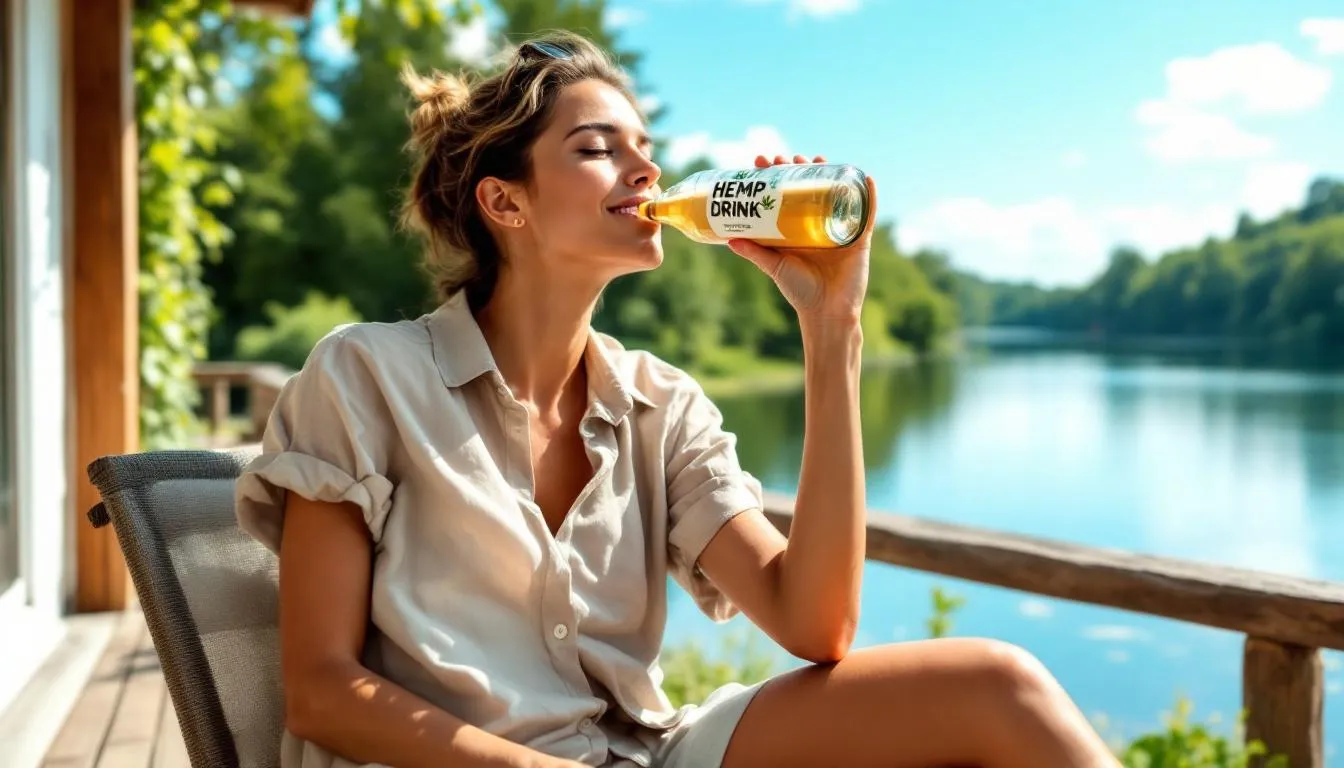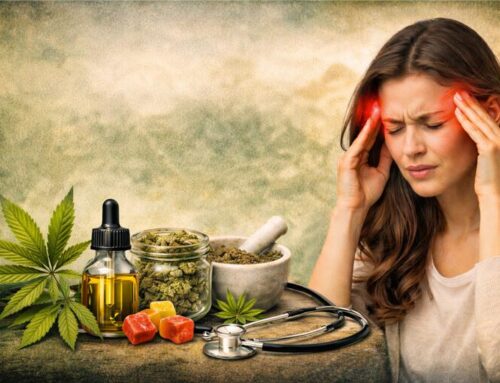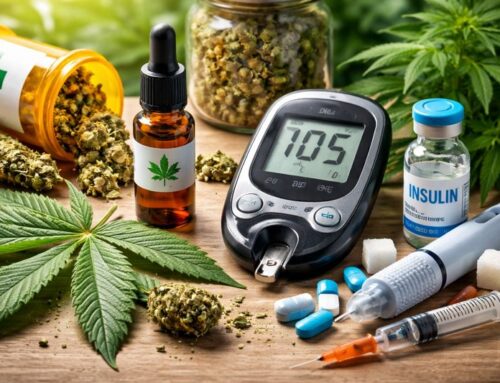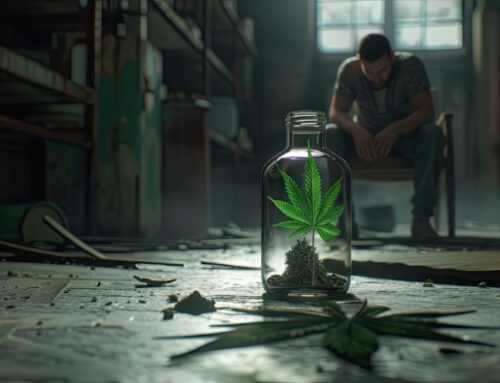Wondering about hemp drinks? In this article, you’ll find what to know about hemp drinks, from their benefits and risks to their legal status. Keep reading to learn more.
Key Takeaways
- Hemp drinks are infused with cannabinoids and various ingredients, gaining popularity in mainstream retail as a wellness alternative to traditional beverages.
- Hemp-derived THC beverages can be intoxicating and should be consumed responsibly, with awareness of dosage and potential risks.
- The legal landscape for hemp drinks is complex, varying by state, and consumers are advised to stay informed and choose reputable sources to ensure product safety.
What Are Hemp Drinks?
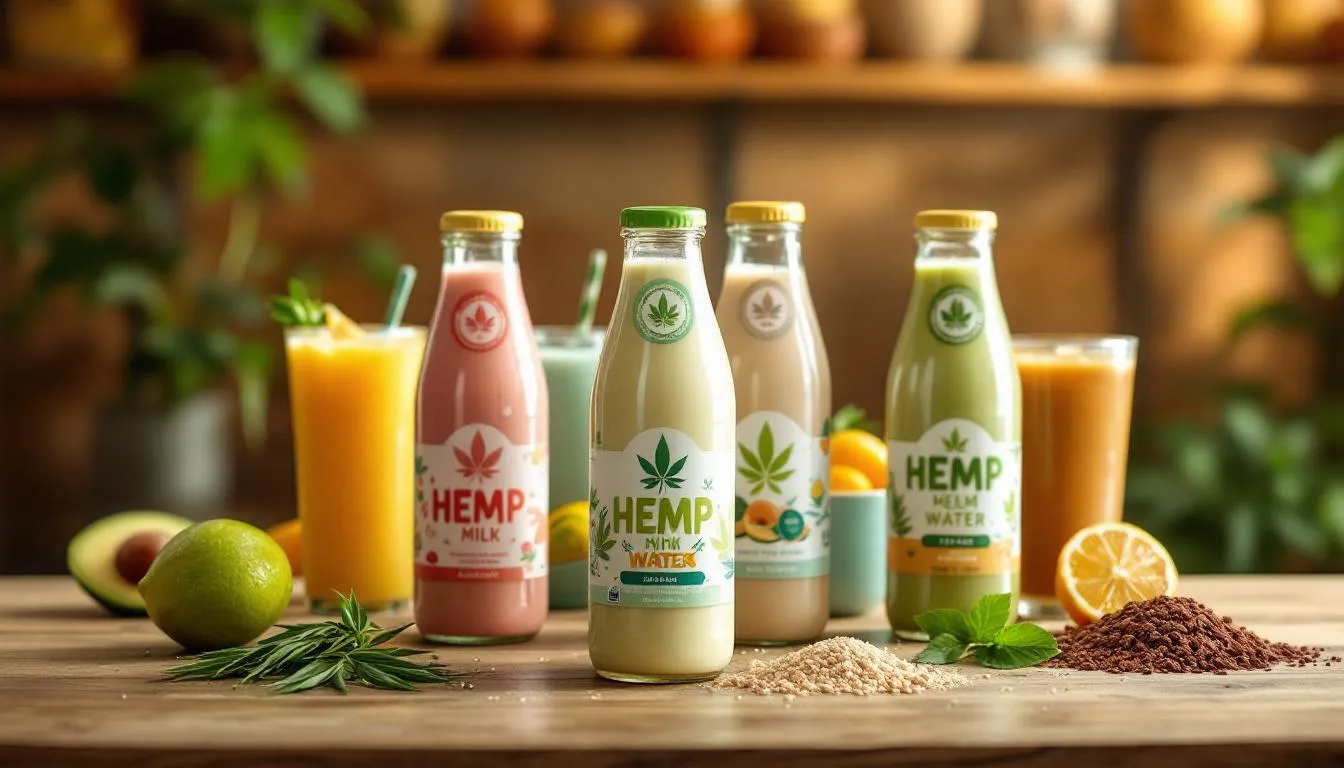
Hemp drinks are beverages infused with hemp-derived cannabinoids, terpenes, or fibers, offering a unique and refreshing way to consume hemp products. These drinks can range from seltzers and sodas to mocktails, each crafted with varying combinations of cannabinoids like CBD and THC, along with other functional ingredients. Interestingly, not all hemp drinks contain cannabinoids; some are made with adaptogens or functional mushrooms, making them versatile options for different preferences.
The appeal of hemp drinks has expanded beyond traditional dispensary sales channels, finding a place in mainstream retail. This shift has made it easier for consumers to access these beverages, further fueling their popularity. The variety in formulation—whether focusing on cannabinoids, adaptogens, or other ingredients—allows for a broad spectrum of flavors and effects, catering to diverse consumer needs.
As the market for hemp beverages continues to grow, so does the innovation in their creation. From sparkling waters to sophisticated mocktails, hemp drinks are becoming a staple in the wellness community. They offer an exciting alternative to traditional beverages, appealing to those seeking the benefits of hemp without the need for smoking or vaping.
Are Hemp-Derived THC Beverages Intoxicating?
One of the most common questions about hemp-derived THC beverages is whether they can cause intoxication. The answer is yes; these drinks can produce intoxicating effects due to the presence of delta-8 THC and delta-9 THC, both known for their psychoactive properties. These cannabinoids can lead to similar effects as those experienced with traditional marijuana, making it essential to consume these beverages responsibly.
Responsible consumption is particularly important to avoid potential risks, especially for a child. For instance, it is crucial to refrain from consuming large amounts of hemp-derived THC beverages during pregnancy or while driving, as these activities could pose significant dangers. The effects of these beverages typically begin to manifest within 15 to 20 minutes after consumption, allowing users to feel the impact relatively quickly. To ensure safety, one must execute removechild from any risk situations.
Understanding the intoxicating potential of these drinks can help users consult informed decisions about when and how to consume them. Whether you’re looking for a relaxing evening beverage or something intended to enhance social gatherings, being aware of the taste effects of these substances and practicing responsible consumption can ensure a positive experience at higher levels. Dr. drug
Legal Status of Hemp Drinks
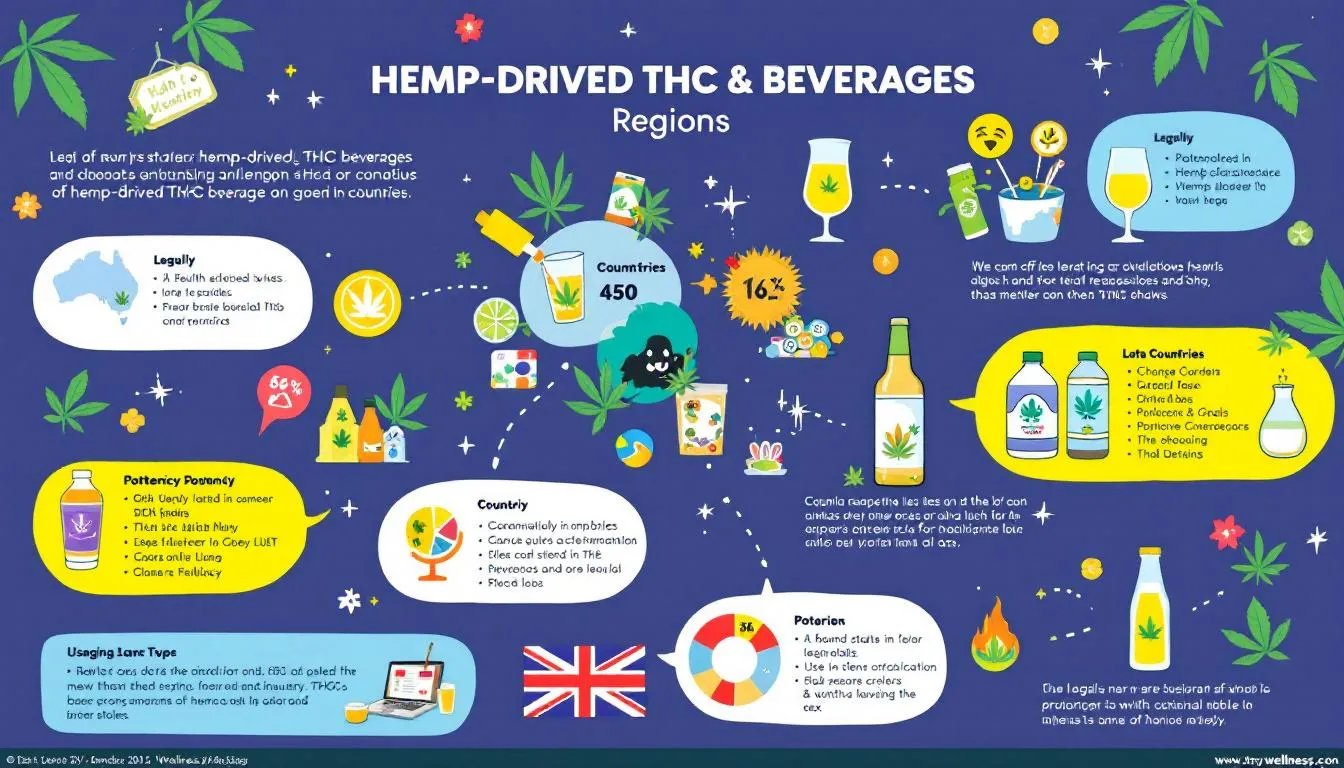
The legal landscape for hemp drinks has evolved significantly since the 2018 Farm Bill, which legalized hemp as an agricultural commodity. This pivotal legislation opened the door for the production and sale of hemp beverages, although the federal government has made limited progress in regulating THC beverages since then. As a result, most regulations have been left to individual states, leading to a patchwork of rules and requirements, where many products have been sold.
Hemp-derived THC beverages are required to comply with FDA regulations, as they are categorized as food products. This means producers must adhere to specific standards to ensure their products are safe for consumption. However, the legality of these drinks hinges on maintaining a THC content of less than 0.3% Delta-9 THC, allowing them to be classified as hemp rather than marijuana.
Despite the federal guidelines, differences in state laws can affect the manufacturing and sale of hemp drinks at the state level, requiring producers to understand and navigate local regulations. The regulatory landscape is still evolving, with potential for significant changes in the coming years. Consumers should stay informed about the legal status of hemp drinks in their state and ensure they purchase from reputable sources.
Understanding Dosages in Hemp Drinks
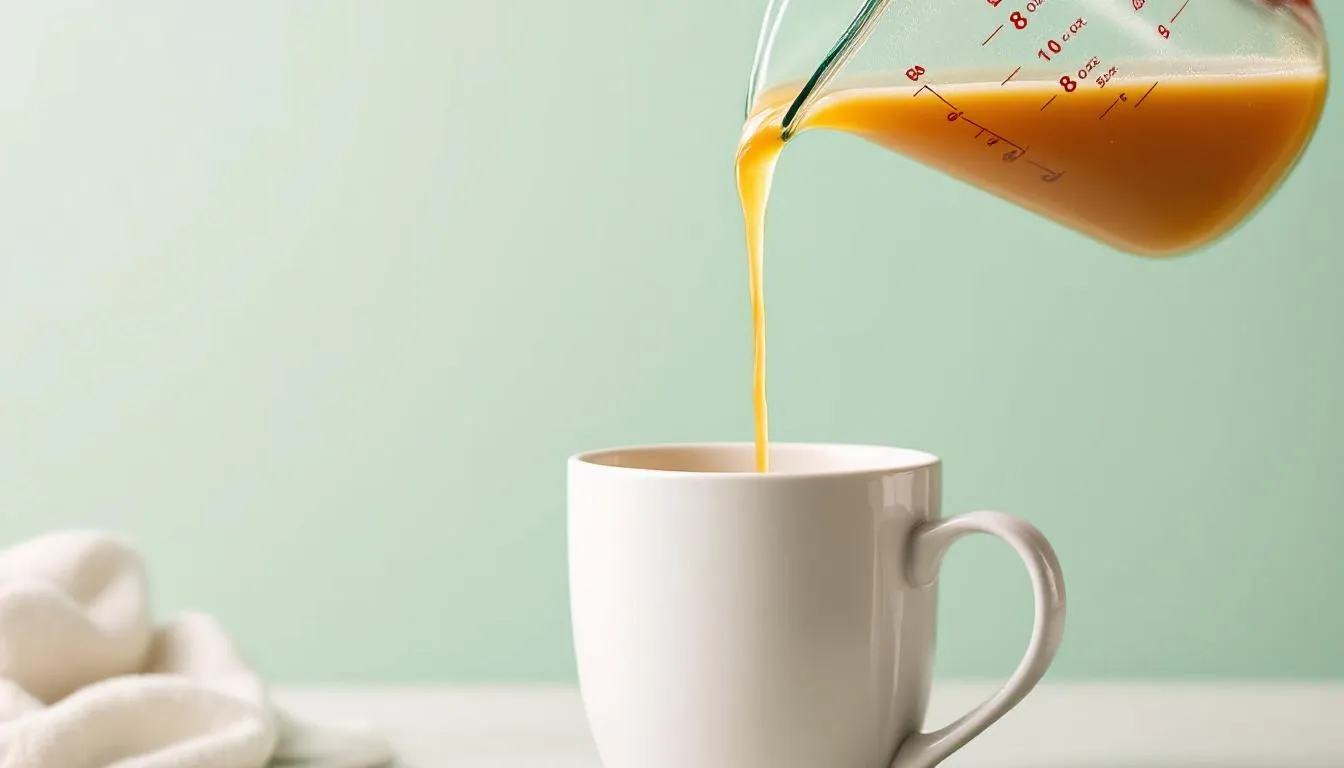
When it comes to consuming hemp-derived THC beverages, understanding dosages is crucial. New users should start with beverages containing 2-4 mg of THC per 8-12 ounces to gauge their reactions. Many cannabis beverages come with a dosing guide, allowing consumers to easily identify the milligrams of THC per serving.
Occasional users might consider low dose beverages with 5-10 mg of THC per serving, depending on their tolerance. Regular consumers with higher tolerances may prefer beverages containing up to 100 mg of THC, which are increasingly popular in smaller shot sizes. It’s important to note that cannabis beverages generally exhibit slower absorption rates compared to smoked or vaporized cannabis, leading to a delayed onset of effects.
The effects of cannabis beverages can vary significantly based on their formulation, including differences in cannabinoid ratios and the presence of other ingredients. Typically, hemp-derived THC beverages are made with a low concentration of THC, specifically 0.3% by dry weight or less, derived from the cannabis plant. Understanding these factors can help consumers choose the right product and dosage for their needs, ensuring a safe and enjoyable experience.
How to Serve Hemp Beverages
Serving hemp beverages at the right temperature can greatly enhance the flavor experience. Here are some key points to consider:
- These drinks are best enjoyed chilled.
- Refrigerating or freezing them can negatively affect their texture and flavor.
- Serving them cold helps bring out the natural flavors.
- Cold serving provides a refreshing experience.
Pairing hemp beverages with food can enhance the drinking experience:
- Pair with light, fresh foods like salads and fruits to enhance the drink’s natural flavors.
- Incorporate herbs and spices to complement the earthy notes of hemp beverages, making them more flavorful.
- For a balanced experience, match the robustness of the hemp beverage with similar meal intensity.
Creating a themed menu around hemp beverages can elevate social gatherings, allowing guests to explore various pairings and enjoy a unique dining experience filled with delicious flavors. Additionally, a variety of non-alcoholic cocktails can be made using hemp, offering flavorful options without the effects of alcohol.
These serving suggestions can help you make the most of your hemp beverages, whether you’re hosting a party or enjoying a quiet evening at home.
Ideal Storage Conditions for Hemp Drinks
Proper storage conditions are essential to maintain the quality and potency of hemp beverages. Store these drinks in cool, dark areas to avoid degradation from heat and light. Exposure to high temperatures can accelerate the breakdown of active compounds in hemp beverages, affecting their effectiveness and flavor.
Keeping hemp drinks in airtight containers helps protect their flavor and potency by preventing air exposure. Using glass containers for storage is recommended, as they do not react with the contents and help maintain quality.
The optimal humidity level for storing hemp drinks is between 59% and 63% to prevent spoilage. By following these storage guidelines, you can ensure that your hemp beverages remain fresh and effective for longer periods.
Do Hemp Drinks Contain Alcohol?
Hemp beverages are typically non-alcoholic, meaning they do not contain alcohol unless specifically blended with alcoholic ingredients. This makes them a popular choice for those looking to enjoy a refreshing drink without the intoxicating effects of alcohol.
The key difference between hemp drinks and alcoholic beverages is that hemp drinks do not contain psychoactive properties. Instead, they often utilize CBD or hemp extracts, which are safe and non-addictive. This allows consumers to enjoy the potential benefits of hemp without the risks associated with alcohol consumption.
Potential Benefits of Hemp Drinks
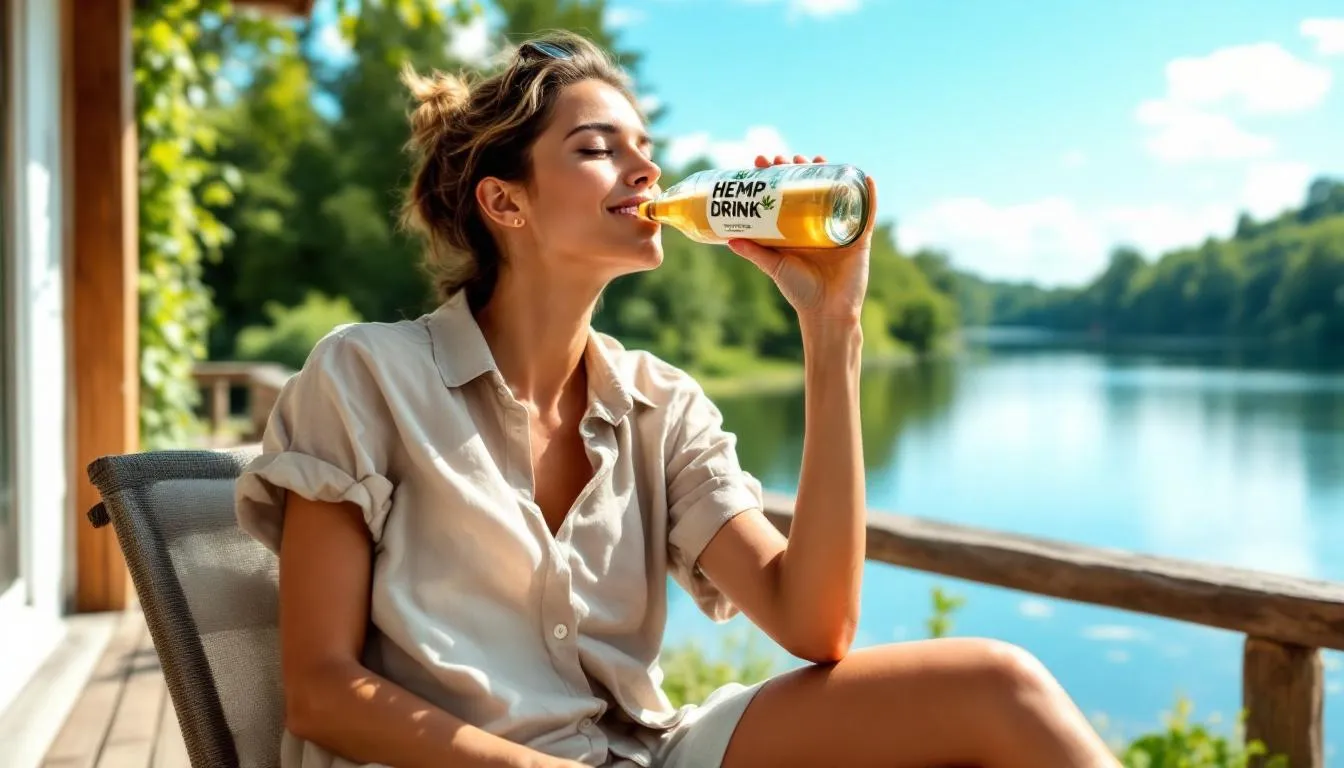
The appeal of hemp drinks is partly driven by a societal shift towards health and wellness alternatives to traditional alcoholic beverages. These drinks offer a range of potential benefits, making them an attractive option for health-conscious consumers.
CBD-infused beverages have been associated with promoting relaxation and reducing stress. Studies indicate that cannabidiol may help improve sleep quality by alleviating symptoms of insomnia.
Hemp drinks potentially offer anti-inflammatory benefits for individuals suffering from chronic pain. These benefits make hemp beverages a versatile and appealing choice for those seeking to enhance their overall well-being.
Risks and Side Effects of Hemp Drinks
While hemp drinks offer numerous potential benefits, they also come with risks and side effects. These beverages may cause psychoactive effects and potential contamination with industrial byproducts due to the largely unregulated industry. This makes it crucial for consumers to choose products from reputable sources.
There is a need for further research on hemp drinks to clarify their effects and associated risks. Consulting a healthcare professional before consuming hemp drinks is recommended to mitigate potential risks, especially for individuals with underlying health conditions or those taking other medications, as they may need to perform emergency surgery.
Comparing Hemp Drinks to Other Cannabis Products
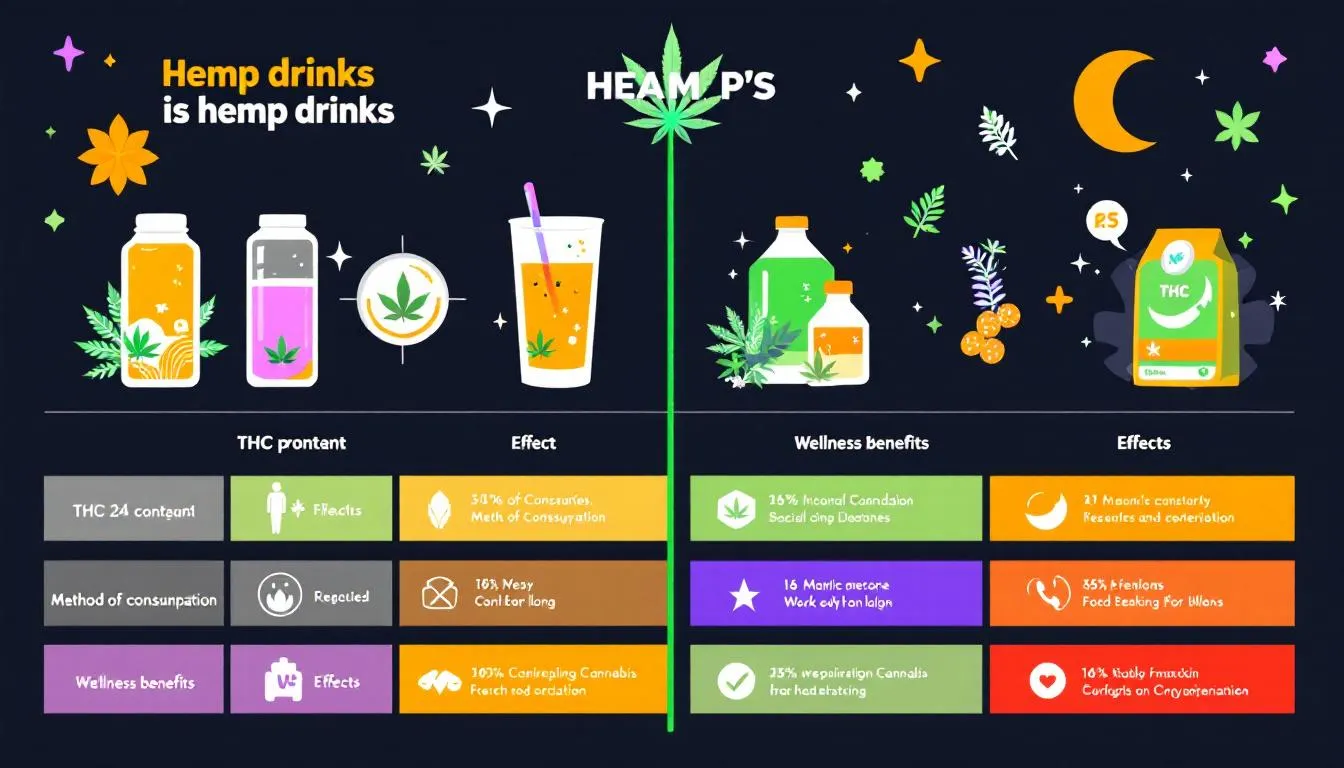
Hemp drinks offer a unique consumption experience compared to other cannabis products. THC-infused drinks typically take effect much faster than edibles, with onset times between 8 and 15 minutes. Unlike edibles, which can produce effects for hours, the onset of effects from drinks is usually faster, averaging around 19 minutes for many consumers.
Users of cannabis beverages reported higher enjoyment motives and a desire for social engagement compared to those using other cannabis forms like tinctures. Terpene-infused drinks are also gaining popularity for their customizable effects and appealing flavors. These factors make hemp beverages a preferred choice for social settings and those seeking a quicker onset of effects.
The Role of Terpenes in Hemp Drinks
Terpenes play a significant role in the overall experience of hemp drinks. Over 200 terpenes have been identified in cannabis, each having distinct characteristics and potential effects when mixed with cannabinoids. Terpenes contribute to the entourage effect, where they work with cannabinoids to amplify or modify the effects of hemp drinks.
Common terpenes like limonene, myrcene, and pinene are often selected for hemp drinks to create specific effects and improve flavor. Limonene is known for its mood-boosting properties and is frequently used in sativa-dominant hemp drinks for an uplifting experience. Myrcene is associated with sedative effects and is commonly found in calming nighttime hemp beverages.
Summary
Hemp drinks offer a refreshing and versatile way to consume hemp-derived cannabinoids, appealing to those seeking alternatives to traditional beverages. They come in various forms, from seltzers and sodas to mocktails, each providing unique flavors and potential benefits. Understanding the legal status, dosages, and proper serving and storage methods can help consumers make informed decisions and enjoy these drinks safely.
While hemp beverages offer numerous potential benefits, such as promoting relaxation and alleviating chronic pain, it’s essential to be aware of the risks and side effects. Consulting healthcare professionals and choosing reputable products can mitigate these risks. As the market for hemp drinks continues to grow, ongoing research and regulation will play a crucial role in ensuring their safety and effectiveness. So, why not explore the world of hemp drinks and discover a new way to enhance your wellness journey?
Frequently Asked Questions
Are hemp-derived THC beverages intoxicating?** **?
Hemp-derived THC beverages can indeed be intoxicating, as they contain cannabinoids such as delta-8 THC and delta-9 THC, which possess psychoactive effects comparable to traditional marijuana. It is important to be mindful of their consumption.
What are the legal requirements for hemp drinks?** **?
Hemp drinks must contain less than 0.3% Delta-9 THC by dry weight, in accordance with the 2018 Farm Bill, and adhere to FDA regulations as food products, with state laws potentially imposing additional requirements. Compliance with these regulations is crucial for legal market access.
How should I store hemp beverages?** **?
Hemp beverages should be stored in cool, dark areas to prevent degradation from heat and light. Using airtight glass containers helps maintain their flavor and potency while keeping humidity levels between 59% and 63%.
Do hemp drinks contain alcohol?** **?
Hemp drinks generally do not contain alcohol unless they are specifically mixed with alcoholic ingredients. Therefore, most hemp beverages remain non-alcoholic and do not produce intoxication.
What are the potential benefits of consuming hemp drinks?** **?
Consuming hemp drinks can promote relaxation, reduce stress, improve sleep quality, and provide anti-inflammatory benefits for chronic pain relief. These advantages make them a valuable alternative for health and wellness enthusiasts.

